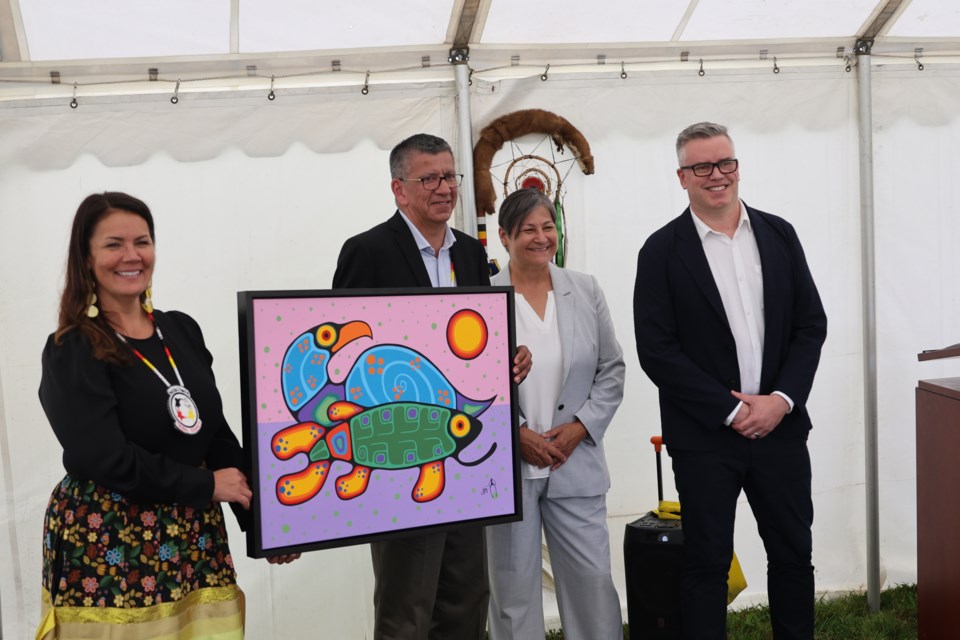FORT WILLIAM FIRST NATION — A new partnership has been formed between a tribal council that provides a number of services to several First Nations in the region and the Workplace Safety and Insurance Board (WSIB).
The agreement between the Nokiiwin Tribal Council and the WSIB was announced at the council’s 19th annual general meeting on Anemki Wajiw (also known as Mount McKay) at Fort William First Nation Aug. 19. It will see Nokiiwin receive $4 million over the next four years from the WSIB to develop programming around workplace health and safety.
“It's going to give us capacity, so we're going to be able to onboard a team to really run and develop this program from a very Indigenous lens,” said Audrey Gilbeau, the executive director and governance advisor with Nokiiwin.
Gilbeau will soon be retiring from the position.
“Health and safety is a paramount issue for communities right now and it permeates into everything we do,” she continued. “It's not just work; it's in the community, and so this will give us an opportunity to also better understand where the needs are when we're talking health and safety.”
Gilbeau called the partnership “an amazing opportunity.”
Nokiiwin Tribal Council provides education, technical, governance and other services to its member First Nations, including Animbiigoo Zaagi'igan Anishinaabek (Lake Nipigon Ojibway Nation), Biinjitiwaabik Zaaging Anishinaabek (Rocky Bay First Nation), Bingwi Neyaashi Anishinaabek (Sandpoint First Nation), Netmizaaggamig Nishnaabeg (Pic Mobert First Nation) and Fort William First Nation. At the meeting, officials also announced that the Ojibway Nation of Saugeen has joined.
The partnership between Nokiiwin and the WSIB grew out of existing work between the two organizations.
Rod Cook, the WSIB’s vice-president of workplace health and safety services, said the tribal council has already been involved with the WSIB’s health and safety excellence program as a service provider, and Tuesday’s announced partnership was an evolution of that.
“We haven't hit the mark; we haven't had the impact that we want to have in Indigenous communities,” Cook said of why the agreement is important for the workplace safety board.
“Our role at WSIB is about promotion of occupational health and safety. It's in the Workplace Safety Insurance Act and we want to do better in Indigenous communities.”
Yolanda Wanakamik, the incoming Nokiiwin executive director, said the first step will be to hire staff and work with their advisory committee to develop the scope of what they’ll be offering.
“That committee will involve all of our communities as well who can participate and actually feed into and support the work that we're doing moving forward,” Wanakamik said.
Gilbeau said it won’t just be the tribal council’s member communities that will benefit, calling it an “all-Ontario focus.”
“Nokiiwin has a very strong value of sharing, and this is something that we've definitely heard throughout the years,” she said. “So, when we offer training to our member communities, for example, if we have spaces, we invite others to attend and participate.”
Gilbeau said focusing on health and safety is important for a variety of reasons.
“There is a legislative component to it,” she said. “You can't wish that away.”
“I think, more to the point though, focusing on those things that ensures that our people are healthy and that they're safe at work … it's a very real conversation.”
— SNnewswatch




